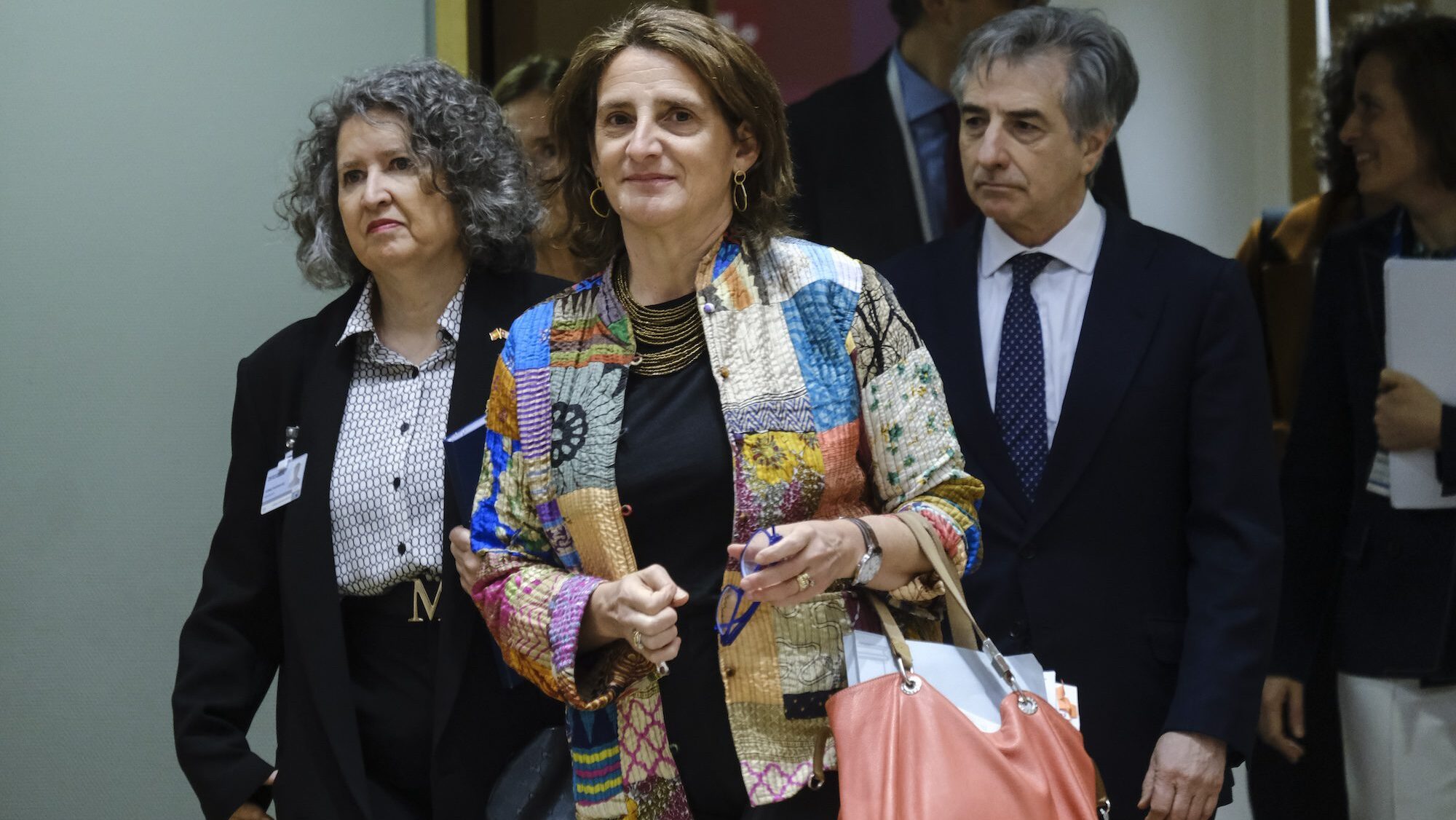
Incoming Commission Executive VP for Competitiveness and Climate, Teresa Ribera (S&D).
Photo: © European Commission
Political group leaders finally came to an agreement after a week of deadlock in the European Parliament (EP) on Wednesday, November 20th, greenlighting all six European Commission vice presidential candidates for plenary approval next week. The formation of the second von der Leyen cabinet is now back on track and is expected to be sworn in on December 1st.
It wasn’t easy to follow the negotiations with all the childish political games, threats, and bluffs in the past week, but the deal finally happened. Despite all the talk about ‘values’ and ‘principles,’ pure transactionalism triumphed: it all came down to trading our guy for your guy.
The social democrat S&D group rolled over and approved the appointment of Italy’s Raffaele Fitto (European Conservatives and Reformists, ECR) as one of the five executive vice presidents of the new Commission (responsible for cohesion and reforms) despite previously vowing never to let a conservative—a “neo-fascist,” as leftists accused Fitto of being—gain a top seat in the EU executive.
In exchange, the European People’s Party (EPP) allowed the Spanish socialist Teresa Ribera (S&D) to become the Executive Vice President for competitiveness and climate, arguably the second most powerful job in Brussels after that of Commission chief von Ursula von der Leyen. The opposition of the Spanish Partido Popular (PP), the EPP’s second most influential member party, either carried no weight in the end or it was simply just ‘theatrics,’ as the national conservative VOX suggested all along.
Ribera’s position was called into question, in particular due to her alleged central role in the Spanish government’s mismanagement of the recent deadly floods in the Valencia region that to date have claimed more than 220 lives, with many more remaining unaccounted for. The PP’s demand that PM Pedro Sánchez replace her with a new candidate, however, was probably just for a domestic show, as the Spanish center-right apparently failed to convince the rest of the EPP to vote against her.
Initially, the EPP set two conditions for Ribera’s approval. One was that she would appear before the Spanish parliament to explain what went awry in Valencia, which she did on Wednesday. The other was that she’d commit to resigning as commissioner should she ever be put on trial for the floods, despite the immunity Brussels would confer upon her. This she simply refused to commit to, evidently because the EPP gave in anyway.
The one silver lining is that the conservative Fitto also passed the bar, allowing for von der Leyen to start repairing her strained relationship with Italian PM Giorgia Meloni and for the EPP to turn her European Conservative and Reformist (ECR) bloc into an informal ally in the Parliament. That could come especially useful as the EP elections significantly weakened the centrists’ long-term coalition partners from the Left.
EPP leader Manfred Weber was delighted by the results:
Everybody can have a strong say for the future of Europe. Socialists have strong dossiers. Liberals have strong dossiers, EPP is in the lead, and [has] a lot of commissioners. And also Italy should be part of all the future Commission leadership.
Some of the leftist lawmakers, however, can never accept Fitto as an EVP and continue to see his appointment as a legitimizing force for nationalists across Europe. They’d prefer to keep all three conservative blocs under strict cordon sanitaire.
“I can only condemn the validation within the European Parliament of a far-right executive vice president of the Commission, which will lead me to vote next week against the Commission proposal as a whole,” S&D MEP Christophe Clergeau, the leader of the socialists’ French delegation, said.
Apart from ending the deadlock about Fitto and Ribera’s appointments, the group leaders also greenlit the appointment of Hungary’s Olivér Várhelyi as the next commissioner for health and animal welfare. The price for leftist support was to limit some of his responsibilities, according to Politico, but at this point, it remains unclear what parts have been taken out of his portfolio.
The final confirmation vote on the entire College of Commissioners will take place during next week’s plenary session in Strasbourg, and despite the saber-rattling from some elements on the Left, it is expected to pass without issue, paving the way for the new administration to take charge early next month.
This agreement marks the first time in 25 years that no commissioner candidates have been rejected by MEPs, which is seen as a step backwards for the Parliament that’s supposed to keep a check on the EU executive’s power. Having firm control over the mainstream parties and being surrounded by relatively inexperienced commissioners who are highly unlikely to challenge her decisions, von der Leyen’s hold over Brussels has never been stronger.
